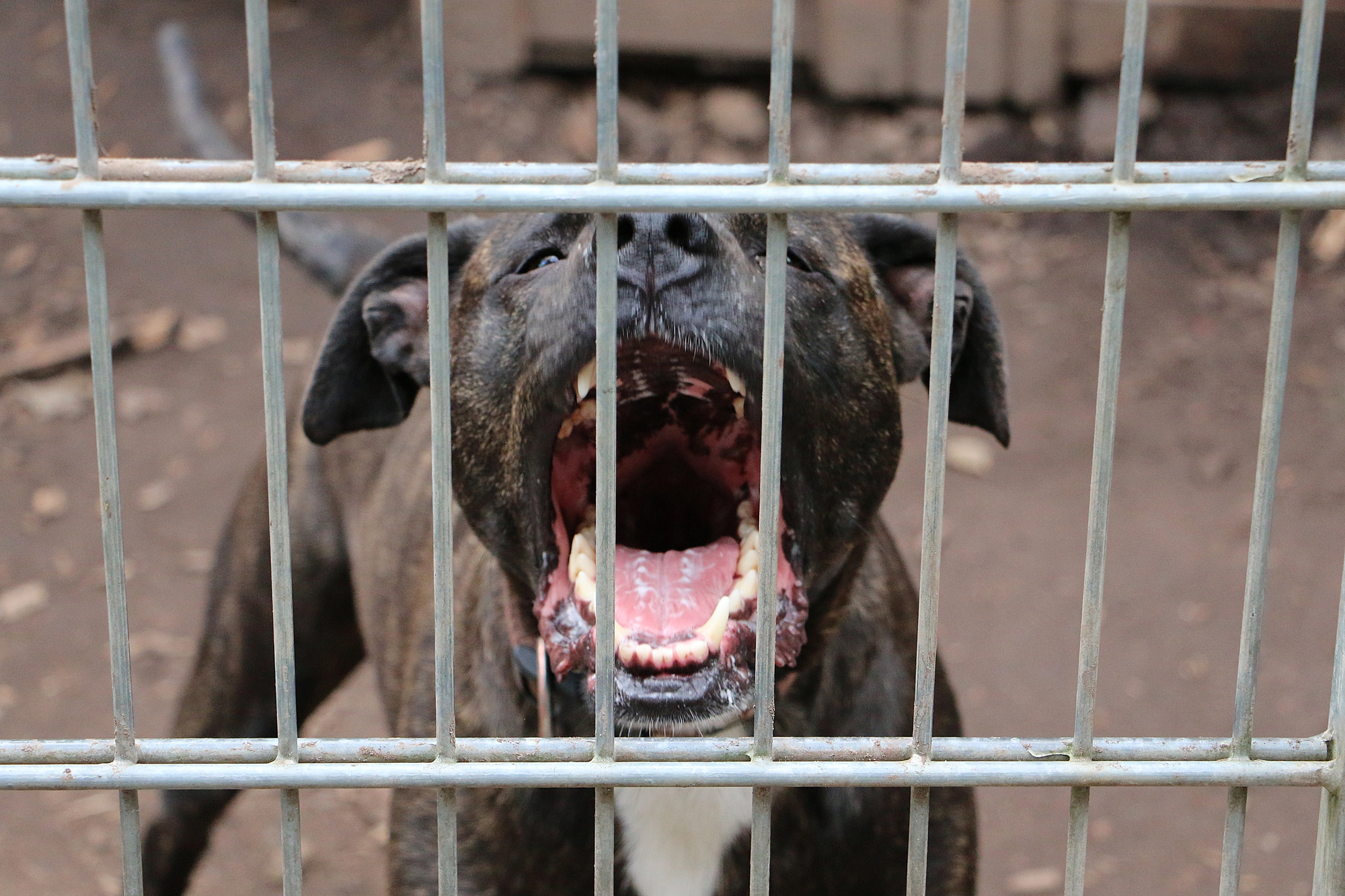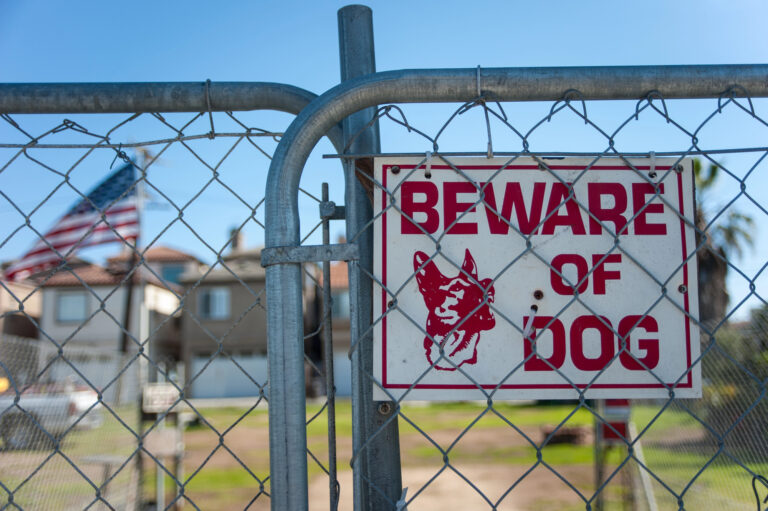Can My Landlord Evict Me If My Dog Bit Someone in Florida?
A Dog Bite Can Lead to Both a Lawsuit and Eviction
If your dog bites someone, your first concern is often the personal injury lawsuit—medical bills, insurance coverage, and legal liability. But for Florida tenants, there is a second, equally serious concern: can the landlord use the incident as a basis to evict you?
The answer is: it depends. Under Chapter 83 of the Florida Statutes, landlords can terminate a lease if a tenant violates lease terms or community rules. A dog bite may be treated as such a violation, especially if the lease contains specific pet clauses or restrictions. This means you could face both a civil dog bite lawsuit and a potential eviction at the same time.
For background on how lawsuits unfold, see our article on what to do if you’re sued for a dog bite in Florida and our guide to Florida’s dog bite defenses.
Eviction Usually Begins with a 7-Day Notice to Cure
Under Florida Statutes § 83.56, a landlord can terminate a rental agreement if a tenant fails to comply with lease obligations or community rules.
For most lease violations, the eviction process begins with a 7-day written notice giving the tenant an opportunity to cure (fix) the problem. In a dog bite context, this might involve:
- Removing the dog from the property
- Purchasing or increasing liability insurance
- Installing secure fencing or muzzling the dog in common areas
- Agreeing to comply with new safety requirements
If you take these corrective steps within the 7-day period, the lease may continue, and the landlord may not proceed with eviction.
However, not all violations are curable. If the landlord views the bite as a severe or “non-curable” breach—for example, a serious injury, a second incident, or a violation of a strict no-dangerous-dogs clause—they may issue a 7-day notice of termination without opportunity to cure. Repeated violations within a 12-month period may also allow termination without another cure period.
For more insight on how landlords treat repeat incidents, see our discussion on dangerous dog designations in Florida and how that can affect both insurance coverage and eviction strategy.
How Dog Bites Can Be Treated as Lease Violations
Not every dog bite will automatically trigger eviction. But many Florida leases include clauses such as:
- “No dangerous pets or animals allowed”
- “Tenant shall not permit animals to injure or disturb others”
- “Tenant must maintain liability insurance for all pets”
If your dog’s bite is seen as a violation of these clauses, the landlord can treat it as a material noncompliance with the lease. Whether you can remain in the property depends on:
- The severity of the incident
- The language of the lease
- Whether the violation is curable or non-curable under § 83.56
- How quickly and fully you respond to the notice
Even if the landlord proceeds, they must follow proper legal procedures and file a formal eviction action in court. They cannot evict you without due process.
If insurance coverage is in question, review your policy carefully—especially for dog breed exclusions, which may affect your defense strategy if the insurer refuses to provide coverage.
Why You May Need Two Lawyers
After a dog bite, it is common for tenants to be facing two separate legal matters:
Dog Bite Defense (Personal Injury Lawsuit)
This involves defending against the injury claim, dealing with insurance coverage, and potentially negotiating or litigating liability under Florida’s dog bite statute. A Florida dog bite defense attorney can evaluate the evidence, assert statutory defenses, and protect your financial interests. If the claim involves someone like a delivery worker, see our post on dog bite liability involving delivery drivers for more context.
Eviction (Landlord–Tenant Law)
Separately, your landlord may pursue eviction under Chapter 83. Eviction defense has strict deadlines and specialized procedures. You will likely need a tenant defense lawyer to respond to the notice, assert cure rights, and challenge any improper eviction actions.
Florida Civil Counsel, P.A. does not provide eviction defense, but we frequently coordinate with tenant defense attorneys so both matters are addressed strategically and on time.
Real-World Example
A tenant in Orlando leased a townhome with a pet addendum allowing one dog. The lease required liability insurance and compliance with community rules. The tenant’s dog nipped a delivery driver, causing a minor injury. The landlord issued a 7-day notice to cure.
The tenant immediately purchased additional insurance, agreed to muzzle the dog in common areas, and installed a new fence. Because these actions were completed within the notice period, the landlord did not proceed with eviction, even though the personal injury claim continued separately.
This scenario shows why understanding and responding properly to the 7-day notice is critical. For tips on responding to insurers or attorneys after a bite, see our guide to handling insurance requests in dog bite cases.
Factors That May Affect Whether Eviction Proceeds
- Lease language: Clear pet or dangerous dog provisions increase the risk of eviction.
- Severity of the incident: A severe attack is more likely to be deemed non-curable.
- Your response to the notice: Quick, documented compliance can prevent termination.
- Landlord’s actions after the incident: Accepting rent after the incident can sometimes waive the right to evict.
- Procedural compliance: Landlords must follow all statutory notice and filing rules under Chapter 83.
If the personal injury claim results in a significant judgment, you may also need to understand your financial protections. Our post on what can be taken away if a car accident judgment is awarded against you offers useful insights that also apply in dog bite contexts.
What to Do If You Receive a 7-Day Notice After a Dog Bite
- Read the notice carefully to see whether it offers an opportunity to cure.
- Take corrective steps immediately (fencing, insurance, removal, etc.) if cure is allowed.
- Contact a dog bite defense attorney to address the injury claim and coordinate with your insurer.
- Consult a tenant defense lawyer right away to ensure your eviction response is legally sound.
- Document everything to show compliance if the landlord attempts to move forward with eviction.
For step-by-step guidance on managing the injury side, read Defending Against Dog Bite Lawsuits in Florida.
How Florida Civil Counsel, P.A. Can Help
At Florida Civil Counsel, P.A., we focus on defending clients in dog bite cases throughout Florida—including Orlando, Tampa, Miami, and Jacksonville.
While we do not handle eviction defense, we regularly work alongside tenant attorneys to protect clients facing both injury claims and lease termination actions. Our role is to defend you on the personal injury side and help coordinate your defense strategy so that neither issue falls through the cracks.
If your dog bit someone and you received a 7-day notice from your landlord, contact our Florida dog bite defense attorneys immediately to protect your legal and financial interests.






